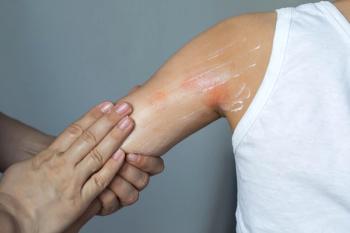
Add gusto to medical presentations
New Orleans — Being a respected authority doesn't guarantee that one's presentations will stand out. Achieving this goal requires speakers to select subjects they love while knowing themselves and their audience, says Steven K. Shama, M.D., M.P.H., inprivate practice in Brookline, Mass.
Frequently, Dr. Shama gives talks around the country on topics including "How to have an unforgettably positive office visit," "How to deal with difficult people" and "How to rediscover the joys of medicine."
Common flaws Common presentation flaws include a monotone delivery and an inability to connect with an audience on a personal level, he tells Dermatology Times.
Find a 'love' Meeting these goals begins with finding a subject one loves.
"Many people give talks about subjects they're experts in but don't really care about anymore," he says. "They're basically regurgitating the same old talks and slides they've had for years."
Finding one's passion requires focusing not on what the speaker has been asked to address, but on why it's worth addressing. Important clinical findings regarding acne, for example, could go unheeded unless one makes clear that the information is intended to help doctors make a difference in patients' lives.
"People love stories," Dr. Shama says. "So when you're addressing why you picked this particular subject to talk to the audience about, tell them a story. Tell them why it means something."
In this regard, he offers the anecdote of a teenage girl who desperately wanted a clear face for prom night in three months.
"All of a sudden," he says, "you've personalized the information, and the audience is with you."
Grabbing and holding an audience's attention also requires practice. Here, Dr. Shama recommends rehearsing the presentation until one is able to leave cue cards at home.
"Don't walk in two minutes before you give your talk with no idea who the AV people are, where the lights are or whether (equipment) is working or not," he adds. "You must arrive at least an hour before, or even the day before."
This allows the speaker to meet AV staffers and enlist their aid in making the talk smooth from a technical standpoint.
"And when things don't work out well - like when the slide projector fails - you probably didn't need it anyway," Dr. Shama says. "I'm not saying we don't need slides in dermatology, but we probably overdo it."
Different perspective Dr. Shama recommends rearranging the room and decorating it with items such as flowers or pertinent quotes, if possible, or at least sitting in audience seats at various angles and distances from the stage to better appreciate listeners' perspectives.
To help dispel stage fright, meet as many audience members as possible before the presentation, he recommends. At the same time, accept that no presentation will please everybody.
Newsletter
Like what you’re reading? Subscribe to Dermatology Times for weekly updates on therapies, innovations, and real-world practice tips.












